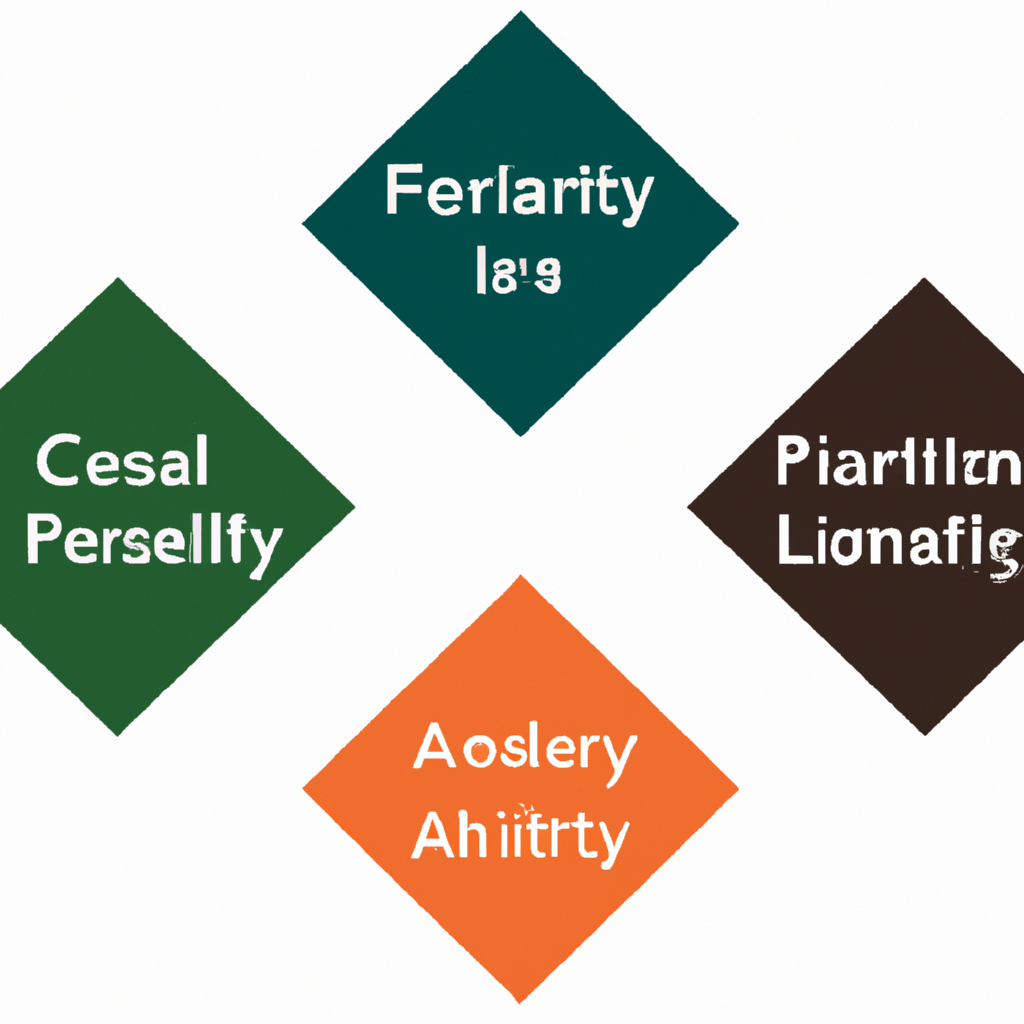Have you ever wondered if you can grow your own vegetables and beautiful flowers in your backyard? Well, it turns out that the legality of home gardening varies from state to state in the United States. In this article, we will take a closer look at the legal landscape and explore which states prohibit home gardening. So grab a cup of tea and join us on this journey to discover if your green thumb is allowed to flourish freely!
States with Prohibitions on Home Gardening
Overview of states with laws against home gardening
In certain states across the United States, individuals may face legal restrictions and prohibitions when it comes to home gardening. These regulations vary from state to state and can impact the ability of residents to cultivate their own gardens in their backyards or front yards. It should be noted that the specific laws and regulations pertaining to home gardening differ in each state, and it is important to consult local and state ordinances for accurate information.
Reasons behind the prohibitions
The reasons behind the prohibitions on home gardening primarily stem from concerns relating to property aesthetics, potential environmental impact, and perceived threats to public health and safety. Some states may argue that they enforce such regulations in order to maintain a certain level of uniformity in their neighborhoods or to prevent home gardeners from growing invasive or noxious plants. Others may highlight the risk of pests and diseases spreading from home gardens to commercial agricultural operations and the potential contamination of soil and water sources.
Challenges faced by home gardeners in these states
For individuals residing in states with prohibitions on home gardening, the challenges can be varied and significant. Firstly, the inability to grow one’s own food can limit self-sufficiency and hinder access to fresh produce. Home gardening offers numerous benefits such as the opportunity to engage in physical activity, reduce food waste, and promote environmentally sustainable practices. Additionally, prohibitions on home gardening can limit the creative expression and personal satisfaction that comes from nurturing plants and the sense of community that often blossoms when neighbors exchange surplus produce. The restrictions can also discourage the development of skills and knowledge related to sustainable agriculture and natural resource management. These challenges highlight the potential negative impact that prohibitions on home gardening can have on individuals and communities.
States with Restrictive Regulations on Home Gardening
Overview of states with strict regulations on home gardening
Several states in the U.S. have enacted strict regulations on home gardening, imposing limitations and requirements on individuals seeking to establish and maintain their gardens. These regulations often aim to strike a balance between promoting responsible gardening practices and addressing concerns related to property values, public safety, and environmental impact. It is important to note that the nature and severity of these restrictions differ among states, and understanding the specifics in each jurisdiction is essential.
Types of restrictions imposed
Restrictions on home gardening can manifest in various ways. Some states may have limitations on the size or location of gardens, requiring specific setbacks from property boundaries or even prohibiting front yard gardening altogether. Others may establish rules regarding the types of plants that can be cultivated, restricting the cultivation of certain species that are deemed invasive or potentially harmful. Additionally, states may require permits or licenses for gardening activities, requiring individuals to comply with certain guidelines and regulations. These restrictions aim to regulate and control home gardening practices to ensure compatibility with local ordinances and to mitigate any perceived negative impacts.
Impact on home gardeners and communities
The presence of restrictive regulations on home gardening can pose challenges for both individual gardeners and the communities they belong to. On an individual level, these regulations may limit the freedom and enjoyment of gardening, preventing residents from pursuing their gardening interests and limiting their ability to create vibrant green spaces. For communities, the absence of home gardens can lead to a disconnect with nature, a higher reliance on commercial food systems, and a missed opportunity to foster a sense of community and shared resourcefulness. Additionally, restrictions may result in the loss of potential economic benefits, such as increased local food production and job opportunities in areas related to gardening and agriculture. It is important for policymakers to carefully consider the potential impact of restrictive regulations on the well-being and vibrancy of communities.

States with Supportive Policies for Home Gardening
Overview of states with supportive policies for home gardening
While some states have prohibitions or restrictive regulations in place, others have chosen to adopt supportive policies that encourage and promote home gardening. These states recognize the numerous benefits that can be derived from individuals cultivating their own gardens and understand the positive impact this can have on food security, community engagement, and environmental sustainability. The specific initiatives and programs implemented by these states reflect their commitment to fostering and facilitating home gardening practices.
Initiatives and programs promoting home gardening
States with supportive policies often offer a range of initiatives and programs to encourage and support home gardeners. These include educational resources and workshops that provide individuals with the knowledge and skills needed to cultivate successful gardens. Some states may offer financial incentives, such as tax breaks or grants, to individuals who engage in home gardening practices. Furthermore, community garden initiatives are commonly established, providing residents with shared spaces to grow their own produce and foster a sense of community. These initiatives and programs play a crucial role in empowering individuals and communities to embrace home gardening as a sustainable and rewarding activity.
Benefits and advantages for home gardeners
Residents of states with supportive policies experience a wide range of benefits and advantages when it comes to home gardening. Firstly, individuals have greater access to fresh, locally grown produce, which can lead to improved nutrition and food security. Home gardening also provides opportunities for physical activity, stress reduction, and connection with nature, contributing to overall health and well-being. Additionally, cultivating a garden fosters a sense of pride and accomplishment, enhancing personal satisfaction and mental well-being. Moreover, home gardening can serve as a cost-effective and sustainable means of supplementing household food supplies and reducing reliance on commercial agriculture. The supportive policies implemented by these states empower individuals and communities to harness the numerous benefits of home gardening.
Case Studies: Examining Specific State Laws
California: A state encouraging home gardening
California stands as a shining example of a state that actively encourages and supports home gardening. The state’s laws and regulations promote sustainable gardening practices while emphasizing the importance of conservation and reducing environmental impact. California allows residents the flexibility to establish gardens on both residential and non-residential properties, with minimal restrictions on the types of plants that can be cultivated. The state also provides various resources and programs, such as the California School Garden Network, which promotes gardening in educational settings. In addition to the environmental and health benefits, home gardening in California plays a significant role in preserving cultural heritage and promoting community engagement.
Texas: A state with restrictive regulations
Texas demonstrates a different approach to home gardening, with relatively strict regulations in place. Some cities in Texas limit the size and location of gardens, restricting gardens to backyards and implementing setbacks from property lines. Certain plants, such as fruit trees, may have specific requirements for distance from buildings or utilities. Moreover, some homeowners’ associations in Texas have regulations prohibiting front yard gardening altogether. These restrictions can limit the ability of residents to cultivate gardens according to their preferences and potentially lead to discouragement in pursuing gardening as a hobby or a means of sustainable living.
New York: Balancing regulations and support
New York strikes a balance between regulations and support for home gardening. The state allows residents to cultivate gardens on their properties, but with certain restrictions in place. For instance, New York City permits front yard gardens as long as they adhere to specific size limits and are not in designated historic districts. The state also provides resources and programs that encourage urban agriculture and community gardening, recognizing the benefits of home gardening while ensuring compatibility with local ordinances. By balancing regulations and support, New York strives to enable residents to engage in home gardening while addressing concerns related to property values and neighborhood aesthetics.
Florida: Home gardening challenges in a tropical climate
Florida’s unique climate and environmental factors present both opportunities and challenges for home gardeners. While the state has generally supportive policies, there are certain regulations that can pose difficulties. For example, Florida has specific requirements and restrictions on the cultivation of citrus trees due to the risk of spreading diseases such as citrus greening. Additionally, the high humidity and potential for extreme weather events in Florida can impact the success of home gardens. However, the state recognizes the importance of home gardening and provides resources and extension services to assist residents in navigating the challenges posed by the tropical climate, promoting sustainable practices and cultivating a thriving gardening community.

Public Opinion and Legal Challenges
Public opinion on home gardening regulations
Public opinion on home gardening regulations varies greatly and reflects the diversity of perspectives on the topic. Supporters of prohibitions and restrictions often emphasize concerns related to property values, maintenance of neighborhood aesthetics, and prevention of pests and diseases. On the other hand, advocates for home gardening argue for the health and environmental benefits, increased food security, and the importance of individual freedoms. Public opinion can play a crucial role in shaping the discourse around home gardening regulations, influencing policymakers and potentially leading to changes in existing laws.
Legal challenges to prohibitions and restrictions
In recent years, there have been legal challenges to certain prohibitions and regulations on home gardening. In some cases, individuals or organizations have taken legal action to challenge the constitutionality of specific regulations or to seek clarification on the scope and authority of local ordinances. These legal challenges highlight the complexities surrounding home gardening regulations and the need for a balance between societal and individual interests. As legal precedent is established in these cases, it can have far-reaching implications for the rights of home gardeners and the ability of states and localities to regulate land use.
Potential changes in the legal landscape
With growing awareness of the benefits and importance of home gardening, there is potential for changes in the legal landscape surrounding these activities. Public opinion, legal challenges, and evolving societal attitudes towards sustainability and self-sufficiency may prompt lawmakers to reevaluate existing restrictions and prohibitions. In response to calls for change, states and localities could introduce more supportive policies, regulations that strike a better balance between interests, or even reconsider prohibitions altogether. The potential for change in the legal landscape offers hope for home gardeners and advocates who seek to foster a more inclusive and sustainable approach to gardening.
The Role of Local Ordinances
Importance of local ordinances in home gardening regulations
Local ordinances have a significant role in shaping the regulations and restrictions on home gardening. While state laws may provide a framework, it is often local governments and municipalities that have the authority to establish specific requirements and limitations on gardening practices. Local ordinances are essential for tailoring regulations to the unique needs and characteristics of a community, ensuring compatibility with neighborhood aesthetics, and addressing potential concerns. As a result, understanding and complying with local ordinances is crucial for home gardeners to navigate the legal landscape and create successful gardens.
Variation in regulations within states
A noteworthy aspect of home gardening regulations is the variation that exists within states. Different cities and counties within a state may adopt distinct ordinances and regulations, resulting in a patchwork of gardening rules. This variation can be influenced by factors such as population density, environmental considerations, and historical context. As a result, home gardeners must be mindful of and adapt to the specific regulations in their locality, as the restrictions and requirements can differ significantly even within the same state.
Examples of local ordinances impacting home gardeners
Local ordinances can have a direct impact on the gardening practices of residents. For instance, some cities might have ordinances that restrict the height of plants, while others may require permits for certain crops or the installation of specific infrastructure like rainwater harvesting systems. Furthermore, homeowners’ associations may impose their own rules that further restrict or regulate home gardening activities. These local ordinances often reflect the priorities and values of a community, but they can also present challenges and limitations for home gardeners who must navigate a complex web of regulations and comply with various restrictions.

Environmental Impact of Home Gardening Regulations
Impact of restrictions on sustainable practices
Restrictions on home gardening practices can have both positive and negative environmental impacts. While certain regulations aim to prevent the cultivation of invasive species or protect against potential environmental harm, overly restrictive measures can hinder sustainable gardening practices. For example, certain bans on rainwater harvesting or limitations on composting can restrict environmentally-friendly practices that contribute to water conservation and nutrient recycling. It is vital for policymakers to consider the potential environmental consequences of regulations and to strike a balance that allows for responsible and sustainable gardening.
Promoting eco-friendly gardening through policy
In order to foster eco-friendly gardening practices, states and localities can enact policies and initiatives that promote sustainability. These can include incentives for water-efficient irrigation systems, support for composting and soil remediation, and the inclusion of native plant species in garden design. By encouraging the adoption of eco-friendly techniques, such as organic gardening methods and the use of native pollinator-friendly plants, policymakers can help to mitigate the environmental impact of home gardening, promote biodiversity, and contribute to the overall health of ecosystems.
Evaluating the environmental consequences
It is essential to conduct thorough environmental assessments to evaluate the consequences of home gardening regulations effectively. These assessments should consider factors such as water usage, pesticide and fertilizer application, soil health, and potential impacts on native biodiversity. By understanding the environmental implications of different gardening practices and regulations, policymakers can make informed decisions that protect ecosystems while still allowing individuals to enjoy the benefits of home gardening. Striking a balance between environmental concerns and personal freedom to garden can create a legal landscape that supports both ecological well-being and the desire for land use autonomy.
Social and Economic Implications
Effect of home gardening regulations on communities
Home gardening regulations can have significant social implications for communities. On one hand, supportive policies and community gardening initiatives can foster a sense of shared purpose, connection, and cooperation among neighbors. Gardens can become focal points for community events, education, and engagement. On the other hand, restrictive regulations may limit social interactions related to gardening and inhibit the development of community bonds. The ability to share surplus produce, exchange gardening tips, and collaborate on projects can be hindered by prohibitions and excessive regulations. It is important for policymakers to consider the potential social benefits of home gardening when crafting regulations to ensure that communities can flourish and thrive.
Economic benefits of home gardening
Home gardening can have various economic benefits at the individual level, as well as for communities and local economies. By growing their own produce, individuals can reduce their grocery bills, particularly during peak growing seasons. Home gardening also contributes to local economies through the potential for the sale of surplus produce and the creation of small agricultural businesses. Community gardens can facilitate economic resilience by providing opportunities for entrepreneurship, job creation, and local food production. These economic benefits, along with the potential for cost savings and reduced food waste, demonstrate the value of home gardening not only for individuals but also for the broader economy.
Social implications of restrictive policies
Restrictive policies on home gardening can have unintended social consequences. Limiting individuals’ ability to engage in home gardening can diminish personal satisfaction and well-being, as well as reduce opportunities for physical activity, stress reduction, and connection with nature. It may also perpetuate disparities within communities, as individuals with limited access to grocery stores or healthy food options are further burdened by regulations that restrict their ability to grow their own produce. By addressing these social implications and striving for more inclusive policies, states and localities can ensure that all individuals have the opportunity to benefit from home gardening, regardless of socioeconomic status.

Advocacy and Activism
Organizations advocating for home gardeners’ rights
Several organizations and advocacy groups have emerged to champion the rights and interests of home gardeners. These organizations work to raise awareness about the benefits of home gardening, educate the public on sustainable practices, and advocate for more supportive policies and regulations. They actively engage with policymakers, provide resources and support to home gardeners, and collaborate with communities to foster positive change. Through their efforts, these organizations play a vital role in amplifying the voices of home gardeners and promoting the rights and freedoms associated with gardening.
Campaigns and initiatives promoting change
Campaigns and initiatives focused on promoting change within the legal landscape of home gardening are gaining momentum. These campaigns aim to raise public awareness, encourage dialogue, and mobilize individuals to advocate for more inclusive and supportive policies. They highlight the positive impacts of home gardening on health, well-being, and environmental sustainability, aiming to shift public opinion and shape legislative priorities. Through grassroots efforts, organizing events, and harnessing the power of social media, these campaigns strive to create a groundswell of support that catalyzes change at the local, state, and even national level.
Engaging with local and state governments
Engaging with local and state governments is a critical avenue for advocating for change in home gardening regulations. Home gardeners and advocacy groups can actively participate in public hearings, community forums, and town hall meetings to voice their concerns and aspirations. By building relationships with policymakers and providing evidence-based arguments, home gardeners can influence the decision-making process and contribute to the development of more flexible and inclusive regulations. Through open and constructive dialogue, direct engagement with elected officials, and the establishment of community partnerships, advocates can effectively promote the rights and interests of home gardeners.
Conclusion
In exploring the legal landscape of home gardening, it becomes evident that states vary significantly in their regulations and policies on this fundamental human activity. While some states embrace and promote home gardening as a pathway to self-sufficiency, community engagement, and environmental sustainability, others impose prohibitions and restrictive regulations that hinder personal freedom and limit access to fresh and locally grown produce. The impact of these regulations resonates in various dimensions, such as social connection, economic opportunities, and environmental sustainability.
As public awareness and understanding of the benefits of home gardening continue to grow, it is crucial for policymakers to reevaluate existing prohibitions and regulations. The potential for change is inherent in the legal landscape; evolving societal attitudes and the advocacy efforts of individuals and organizations drive the potential transformation. By adopting supportive policies, engaging with local and state governments, and promoting sustainable practices, it is possible to reshape the legal landscape surrounding home gardening and foster communities that thrive with vibrant green spaces and access to homegrown produce.
In conclusion, the call to action for home gardeners is clear: stay informed about the regulations in your jurisdiction, educate your neighbors and community about the benefits of home gardening, and actively engage with policymakers to advocate for inclusive and sustainable gardening practices. By coming together, home gardeners can create a legal landscape that supports and nurtures their passion for gardening while simultaneously realizing the numerous benefits for individuals, communities, and the environment as a whole.

